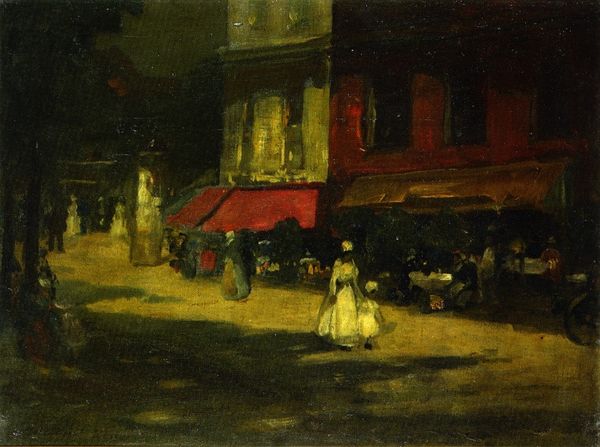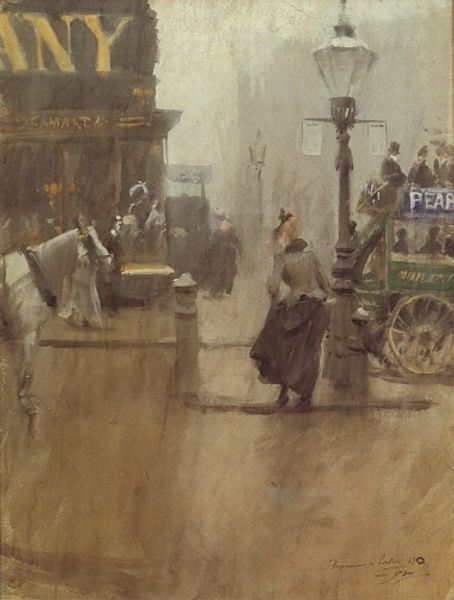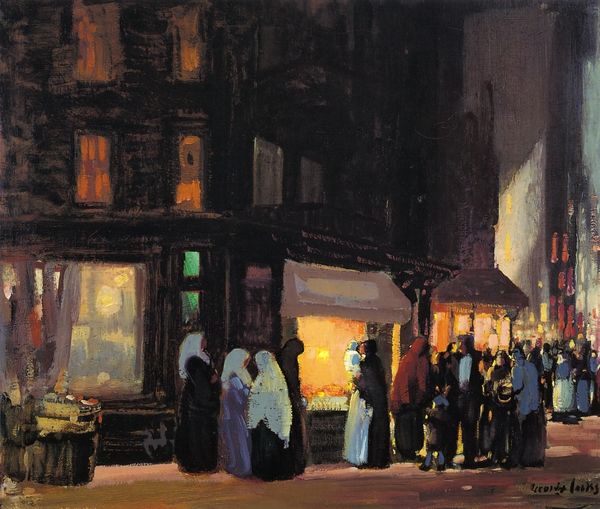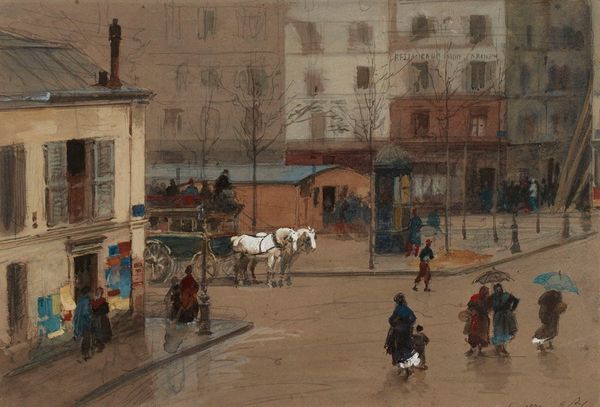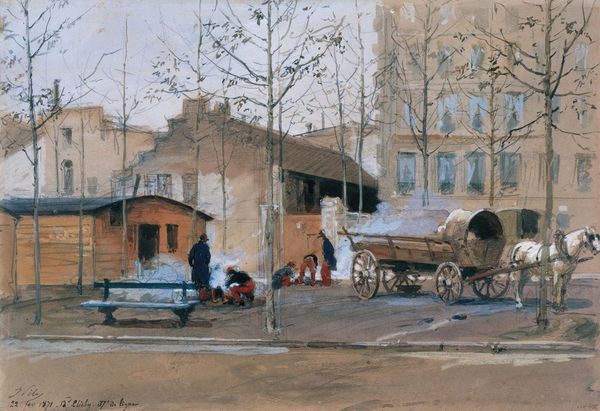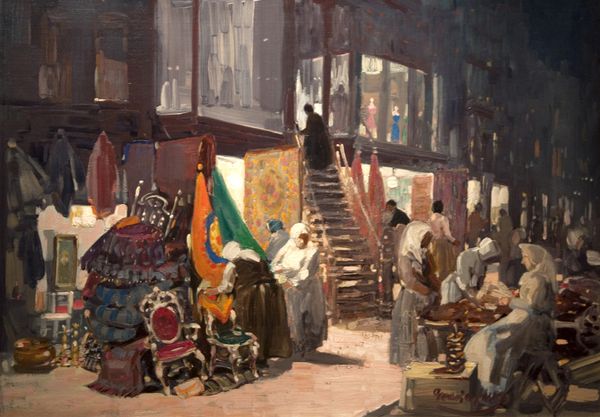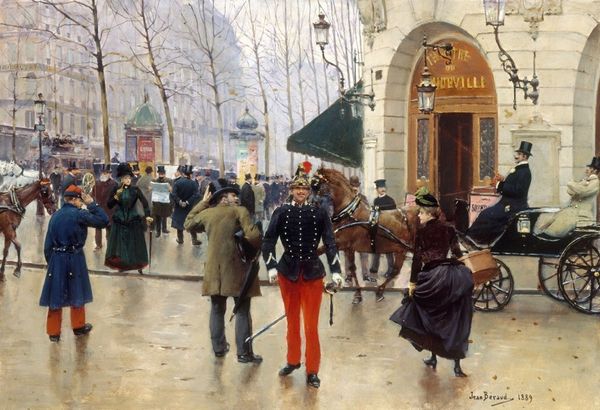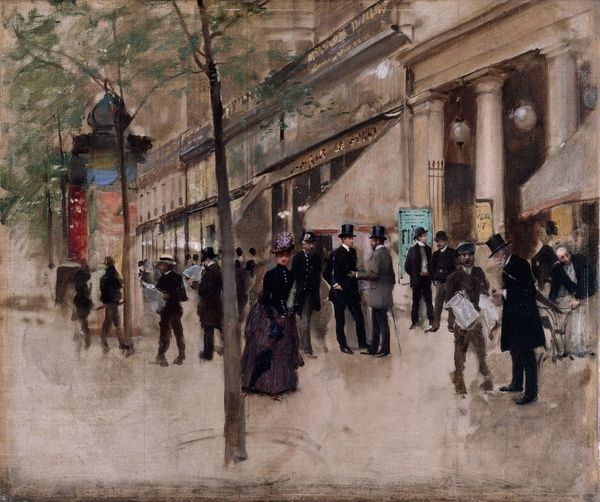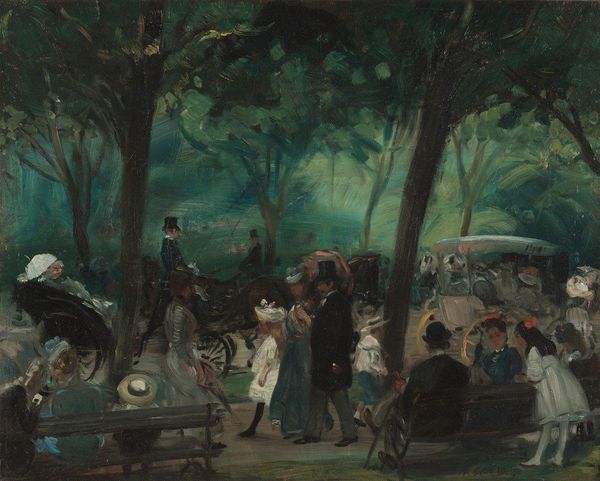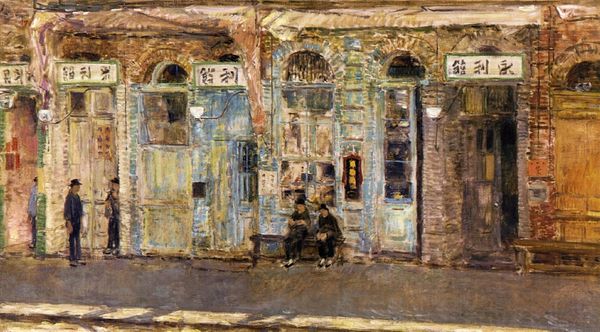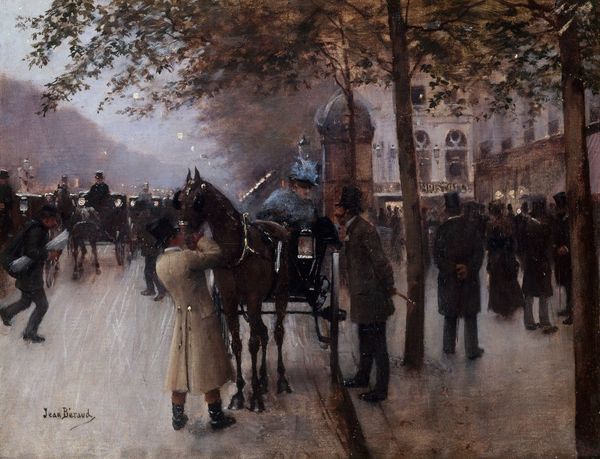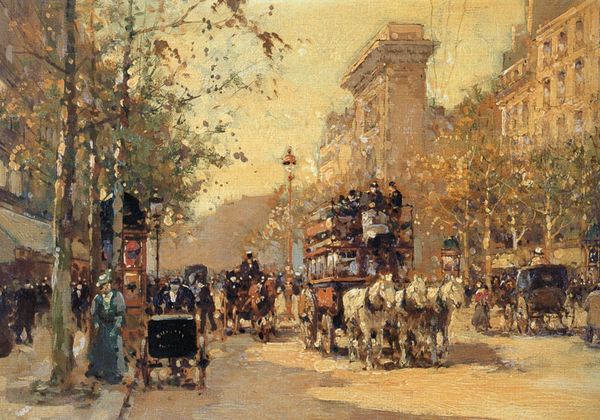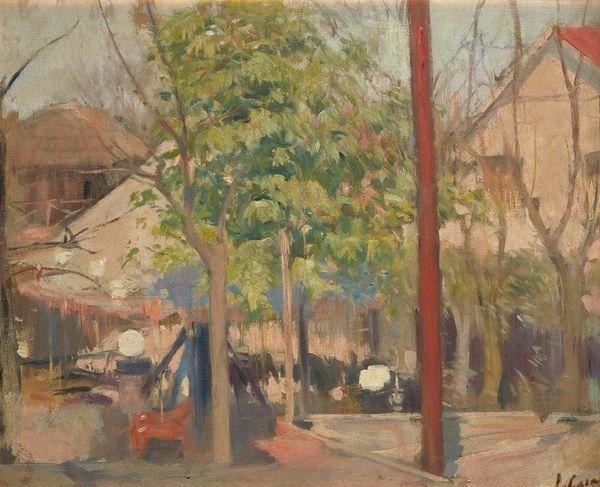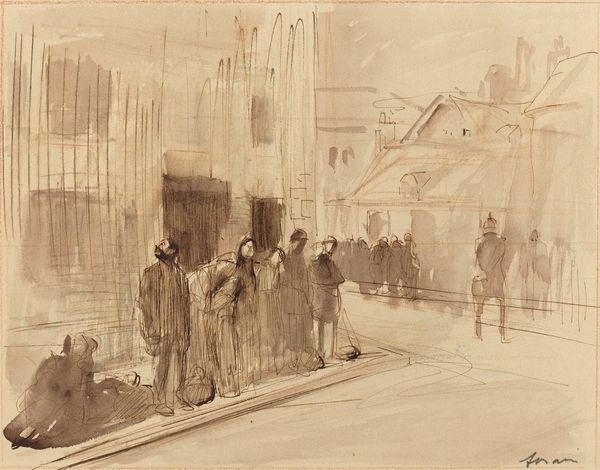
Copyright: Public Domain: Artvee
In Raimundo de Madrazo's painting, we see the Hotel du Nord aglow, the setting for a masked ball, a scene rich in symbolism and the allure of Parisian nightlife. The mask, a central motif, carries a legacy from ancient rituals to Venetian carnivals, offering anonymity and liberation from social constraints. Yet, this freedom is fleeting. As the revelers depart, the masks come off, and the carriage awaits. The carriage is a symbol of transition, a return to reality, and a reminder of the boundaries between the freedom of the night and the responsibilities of daylight. Consider how the motif of the carriage resurfaces in works like Jacques-Louis David’s "The Intervention of the Sabine Women," where chariots symbolize war and resolution. The carriage, like the mask, embodies a psychological duality; it offers passage, but also restraint, reflecting our collective ambivalence towards change and the unknown. It is the cycle of transformation and returning home.
Comments
No comments
Be the first to comment and join the conversation on the ultimate creative platform.
